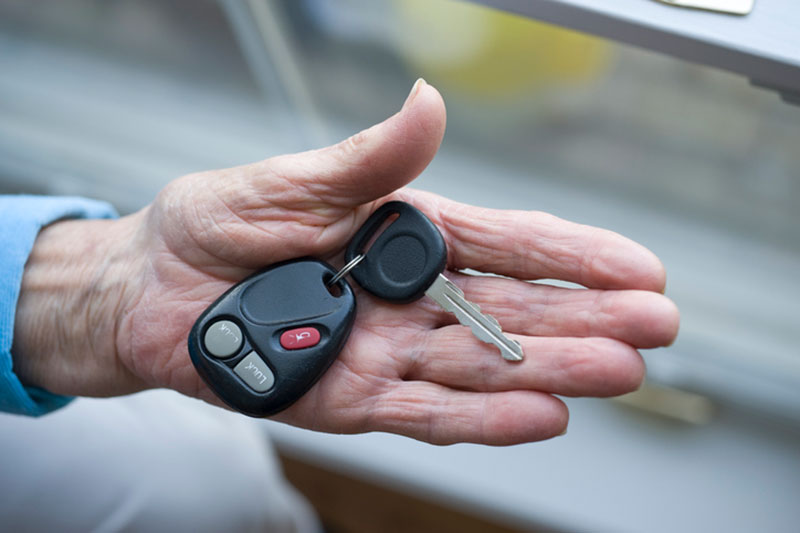
Find out how home care helps older adults stay independent when it’s time to stop driving.
It is a discussion no one wants to have with our older parents, but one that will probably be necessary sooner or later. To be able to drive whenever and wherever we decide is an essential element to our feeling of freedom, yet as we age, operating a vehicle can become unsafe for a number of reasons: poor vision, decreased reflex and response times, cognitive problems, and more. Helping older adults stay independent is important, but if you are starting to have doubts about a senior’s ability to continue to drive safely, it is time to discuss the idea of giving up driving.
How Can You Tell That It Is Time for an Older Adult to Quit Driving?
There are some red flags to watch for that indicate the necessity for a senior to stop driving, including:
- Becoming lost on familiar driving routes
- Missing traffic signals or signs
- Not yielding or cutting off other drivers
- Making wider turns than necessary
- Not staying between the lines
- Coming across as tired or inattentive
- Experiencing difficulty with judging distances
- Becoming frustrated, angry, or agitated
- Not using turn signals or mirrors properly
How Can You Initiate the Conversation About Giving Up the Keys?
Most importantly, steer clear of correcting or criticizing the person’s errors while they are driving, because this can cause increased unsafe behaviors. After the car is parked, calmly describe specific instances of concern that you witnessed as a starting point to the larger discussion in regards to the need for the senior to quit driving.
The following tips are a good way to move the conversation forward to make sure you are being heard and taken seriously. Use the conversation to reduce the senior’s stress and to provide a solution that will empower the individual to maintain independence.
Key Points to Bear in Mind:
- Solicit help from others that the senior knows and trusts, either in supplying their own examples of concerns or even in joining you for the conversation.
- Try to avoid blaming or shaming the person.
- Keep your temperament relaxed and encouraging to make sure you do not seem angry.
- Discuss specific instances of troubling habits.
- Let the senior know you’re in this together, and that collectively you are going to come up with an answer that ensures safety for the senior as well as other drivers and pedestrians.
- Expect to see resistance and defensiveness, and that it may take more than one conversation.
If the person remains insistent about not stopping driving, arrange for a checkup and consultation with the doctor. There may be medication side effects, vision problems, or other health-related reasons for driving difficulties that can be rectified; or, the doctor may have more influence in convincing the person to stop driving.
How Can Older Adults Stay Independent Without Being Able to Drive?
Fortunately, there is a simple solution that allows an older adult to come and go as they wish: a professional in-home caregiver from Morning Glory Home Care, a trusted provider of Alton memory care and home care services throughout the surrounding areas.
Our caregivers are available to provide transportation and accompaniment whenever and wherever a senior would like to go, including:
- Doctor appointments and medical procedures
- Running errands and shopping
- Social outings with friends
- Going out to lunch or for a walk in the park
- Hair and nail appointments
- Exercise or any other classes
- Even vacations or longer-destination outings
The best part? A caregiver offers friendly companionship and conversations that make any journey more fun than going alone!
Contact our in-home care experts at 618-667-8400 for more information about our transportation services for seniors, and help an older adult you love safely enjoy life to the fullest.
